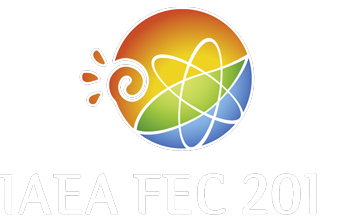Speaker
Dr
Richard Kemp
(CCFE)
Description
Although the ultimate goal of most current fusion research is to build an economically attractive power plant, the present status of physics and technology does not provide the performance necessary to achieve this goal. Therefore, in order to model how such plants may operate and what their output might be, extrapolations must be made from existing experimental data and technology. However, the expected performance of a plant built to the operating point specifications can only ever be a “best guess”. Extrapolations far beyond the current operating regimes are necessarily uncertain, and some important interactions, for example the coupling of conducted power from the scape-off layer to the divertor surface, lack reliable predictive models. This means both that the demands on plant systems at the target operating point can vary significantly from the nominal value, and that the overall plant performance may potentially fall short of design targets.
Two questions must therefore be answered: what is it most important to know accurately; and if we do build a power plant to a particular design, what is the expected performance as opposed to the design performance? Answering the first question leads to the ability to focus research in those particular areas of maximum leverage. Answering the second question allows the identification of a design point which can be robustly expected to meet performance requirements and thus provides a stable basis for further engineering design work. We can also explore additional operating scenarios within a fixed machine design which might restore performance, albeit at higher risk.
In this contribution we discuss tools and techniques that have been developed to assess the robustness of the operating points for the EU-DEMO tokamak-based demonstration power plant, and the consequences on its design. These tools fall into two main categories: ways of assessing the uncertainty of performance of a particular operating point, and a “risk register” which records the main potential issues and their consequences on design decisions or plant output. The consequences for plant design, if the uncertainties cannot be resolved and expected performance must be downgraded before the design is finalised, and plant output, if actual performance is not equal to that assumed at the final design stage, are included. The aim is to make explicit the design choices and areas where improved modelling and DEMO-relevant experiments will have the greatest impact on confidence in a successful DEMO design.
This work has been carried out within the framework of the EUROfusion Consortium and has received funding from the Euratom research and training programme 2014-2018 under grant agreement No 633053 and from the RCUK Energy Programme [grant number EP/I501045]. The views and opinions expressed herein do not necessarily reflect those of the European Commission.
| Country or International Organization | UK |
|---|---|
| Paper Number | FIP/3-2 |
Primary author
Dr
Richard Kemp
(CCFE)
Co-authors
Dr
Gianfranco Federici
(EUROfusion Consortium)
Prof.
Hartmut Zohm
(Max-Planck-Institut für Plasmaphysik)
Dr
Ronald Wenninger
(EUROfusion Consortium)

